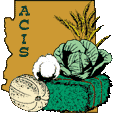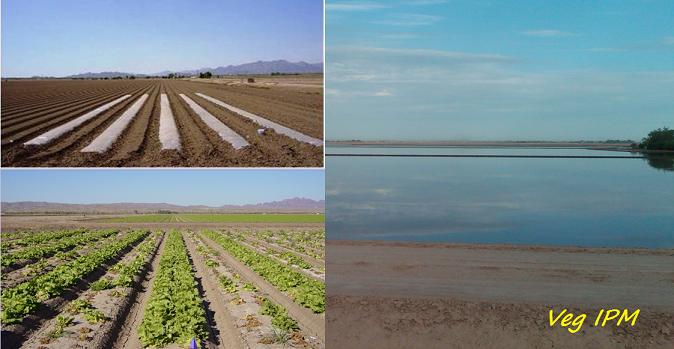 |
|
|
|

|
|||
| |
|||
The 2010-2011 lettuce production season is almost history in the desert southwest region of Arizona. Transitioning to warm weather crops, the past development of Sclerotinia drop in lettuce fields, especially the large outbreak of airborne infection caused by Sclerotinia sclerotiorum in late December and January, may be something growers and Pest Control Advisors want to rapidly forget. Although the crop and the disease are now gone, Sclerotinia is still present in formerly infected fields as sclerotia. These small fungal bodies produced in large numbers on infected lettuce plants were incorporated into the soil along with the remains of diseased lettuce plants, allowing Sclerotinia sclerotiorum and the related Sclerotinia minor to carry over in soil and await the planting of the next crop of lettuce or other susceptible crop. How long these sclerotia survive in soil depends on several factors; however, high soil moisture and temperature are known to greatly hasten their destruction. Soil moisture supplied by irrigation of warm-season crops plus increasing soil temperature due to solar radiation, which peaks in July and August, will help reduce the number of sclerotia capable of infecting a future lettuce crop. Solarization or flooding of infested field soil for at least 4 weeks during the hottest months of July and August have been shown to destroy virtually all sclerotia of both fungal pathogens.
To contact Mike Matheron go to: matheron@ag.arizona.edu.
|
|||
| Back | |||
For questions or comments on any of the topics please contact Marco Pena at the Yuma Agricultural Center. |
|||
| Home | Cotton
| Veggies | Forages
| Grains | Citrus
| Crop x Crop Insects | Diseases| Weeds | Pesticides | Economics | News | Weather | Research | Photos | Contacts | General Info. Copyright © 2001 University of Arizona, College of Agriculture and Life Sciences Webmaster: Al Fournier (acis@ag.arizona.edu) |
|||
